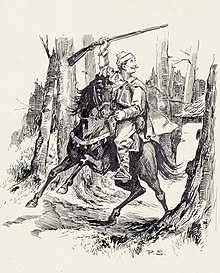
Karl Friedrich May was a German author. He is best known for his novels of travels and adventures, set in the American Old West, the Orient, the Middle East, Latin America, China and Germany. He also wrote poetry, a play, and composed music. He was a proficient player of several musical instruments. Many of his works were adapted for film, theatre, audio dramas and comics. Later in his career, May turned to philosophical and spiritual genres. He is one of the best-selling German writers of all time, with about 200,000,000 copies sold worldwide.

Winnetou is a fictional Native American hero of several novels written in German by Karl May (1842–1912), one of the best-selling German writers of all time with about 200 million copies worldwide, including the Winnetou trilogy. The character made his debut in the novel Old Firehand (1875).
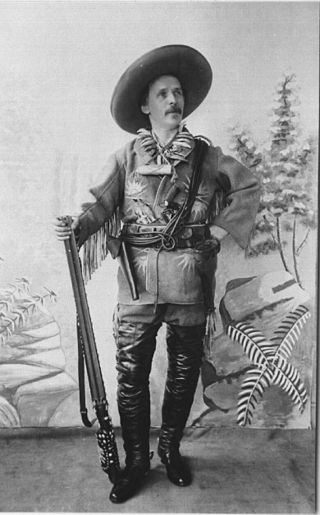
Old Shatterhand is a fictional character in Western novels by German writer Karl May (1842–1912). He is the German friend and blood brother of Winnetou, the fictional chief of the Mescalero tribe of the Apache. He is the main character in the Eurowestern by the same name from 1964, starring Lex Barker, as well as in six more films of the Winnetou film series.
Hadschi Halef Omar Ben Hadschi Abul Abbas Ibn Hadschi Dawud al Gossarah, literally hajji Halef Omar, son of hajji father-of-Abbas, son of hajji David al Gossarah, is one of Karl May's literary characters. Hajji means "one who has performed the Muslim pilgrimage to Mecca".
Karl May film adaptations are films based on stories and characters by German author Karl May (1842–1912). The characters Old Shatterhand, Winnetou, and Kara Ben Nemsi are very famous in Central Europe.
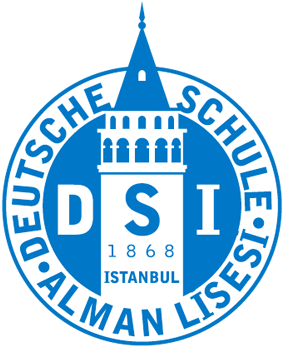
Deutsche Schule Istanbul, with formal Turkish name Özel Alman Lisesi or İstanbul Alman Lisesi or simply Alman Lisesi is a private international high school in the Beyoğlu district of Istanbul, Turkey. It is responsible to both the Federal Ministry of Education and Research of Germany and the Ministry of National Education of Turkey.

Marah Durimeh is a fictional character from Karl May's novels around Kara Ben Nemsi. Her real identity is Ruh'i Kulyan. She is known as Es Sahira to Kurds. Durimeh is a Kurdish princess and widow of a famous king. She is said to have written several books.

Friedrich Siegmund Georg Freiherr Kress von Kressenstein was a German general from Nuremberg. He was a member of the group of German officers who assisted in the direction of the Ottoman Army during World War I. Kress von Kressenstein was part of the military mission of Otto Liman von Sanders to the Ottoman Empire, which arrived shortly before World War I broke out. He was also the main leader for the Ottoman Desert Command Force (DCF).

Carl de Vogt was a German film actor who starred in four of Fritz Lang's early films. He attended the acting school in Cologne, Germany. Together with acting he was also active as a singer and recorded several discs. His greatest hit was "Der Fremdenlegionär". An extremely successful actor in his early career, he died in relative obscurity in 1970.
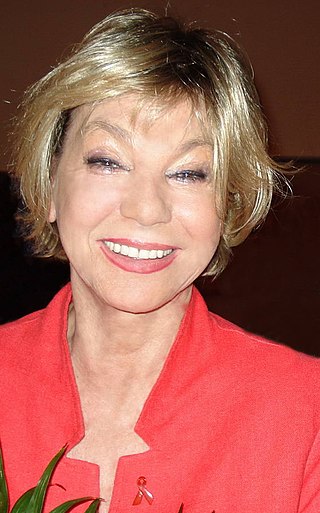
Judy Winter is a German actress. She resides in Berlin.
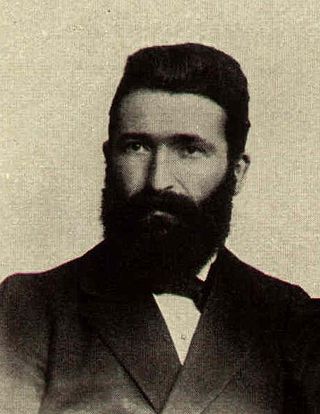
Johannes Avetaranian, born Mehmet Şükri was originally a mullah in Turkey who converted from Islam to Christianity, and later became a missionary for the Swedish Mission Covenant Church in Southern Xinjiang (1892–1938). He translated the New Testament into the Uyghur language. He preached Christianity in Xinjiang and at a Swedish Protestant mission. He died in 1919, aged 58, in Wiesbaden.
Friedrich Schrader was a German philologist of oriental languages, orientalist, art historian, writer, social democrat, translator and journalist. He also used the pseudonym Ischtiraki. He lived from 1891 until 1918 in Istanbul.

The White Bridge was a Roman bridge across the river Granicus in Mysia in the north west of modern-day Turkey. Presumably constructed in the 4th century AD, it belonged in Ottoman times to the important road to Gallipoli on the Dardanelles. The structure was praised by early European travellers for its fine construction and marble facing, but was plundered for building material during the 19th century.
Kara is both a given name and a surname with various, unrelated origins in various cultures. As an English name, it is a spelling variant of the Italian endearment cara, meaning beloved, or the Irish word cara, meaning friend, or a hypocorism for the name Caroline. It was popularized in the 20th century by the DC Comics superheroine Kara Zor-El.
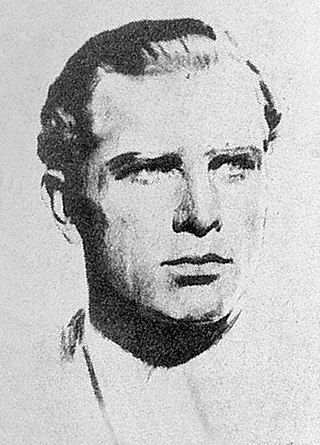
Viktor Staal was an Austrian film actor.
Mit Karl May im Orient is a six-part West German television series based on the Orient cycle of adventure novels by Karl May.

Across the Desert is a 1936 German adventure film directed by Johann Alexander Hübler-Kahla and starring Fred Raupach, Heinz Evelt and Aruth Wartan. It was based on a novel by Karl May. It was the first sound adaptation of a May novel, and the only one to be produced during the Nazi era. Set in the Ottoman Empire during the nineteenth century, it portrays a series of oriental adventures of travellers Kara Ben Nemsi and Hadschi Halef Omar.
İsmet Ergün is a Berlin artist and stage designer of Turkish provenance. Alongside her theatre work she has worked in the world of cinema as an art director and as a production designer. The short film "Bende Sıra" which she directed, and for which she herself wrote the screenplay, was singled out for commendation at the 2007 Locarno Film Festival: it also won the "Best German Film 2007" at the Berlin "Interfilm" festival later the same year.

The Shoot is a 1964 adventure film directed by Robert Siodmak and starring Lex Barker, Marie Versini and Ralf Wolter. It was made as a co-production between West Germany, France, Italy and Yugoslavia. It is based on the 1892 novel of the same title by Karl May, and was part of a string of adaptations of his work started by Rialto Film's series of western films. It was a commercial success, benefiting from the presence of Barker and Versini who were stars of Rialto's series.

Karl Neufeld, also known as Charles Neufeld was a German merchant, active in 19th-century Sudan, who was kept as a prisoner by the Mahdist state for twelve years and set free after the British victory over the Mahdist forces. He published his autobiography about this experience under the title A Prisoner of the Khaleefa. Twelve Years Captivity at Omdurman in 1899. During the first half of World War I, Neufeld also acted as translator and undercover agent for the German Empire, trying to incite Arabs against the British Empire.

